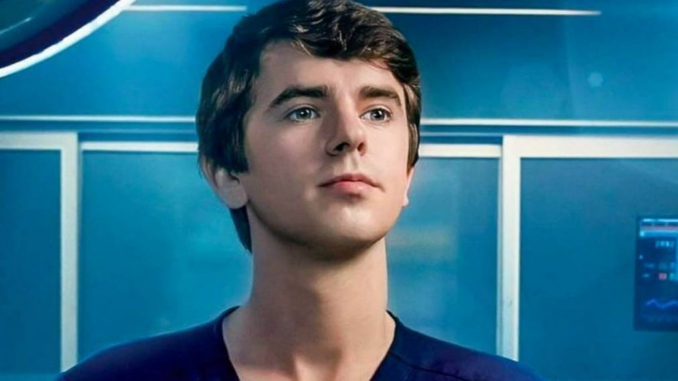
After seven seasons and 126 episodes, Freddie Highmore’s Dr. Shaun Murphy hung up his scrubs on ABC’s The Good Doctor. The series has been a relatively consistent hit for the network, but the longer a show goes on, the more expensive it gets to produce and this has become something that networks have to pay attention to in the ever-changing television viewing landscape. The benefit that The Good Doctor had going into this season was that the creatives knew it would be the last, although it was sadly cut short due to production having to start late because of the writers’ strike. Despite the challenges going into this final season, Highmore seems content with how things ended and expresses what it was like having to say goodbye after seven seasons.
During a chat with Variety, Highmore was asked what it was like when they said that was a wrap on his final scene. While he said it was “hard to describe”, he admitted that it felt like a graduation because you can move on to other things, but there is a sense of sadness because of how special it has been being a part of the show.
“It’s hard to describe. I think the general feeling that I’ve felt is it’s a bit like graduation. You are nostalgic because you’re aware of how special these last few years have been with this group of people, and you are aware you’re never going to replicate that again at another point. Of course, it’s moving and emotional in that way, but at the same time, like graduation, you are excited to do other things and to move on. You know that it’s healthy and good and that you can’t stay at university forever. So I’m also excited for everything that’s to come in the future.”
The Good Doctor Has a Lasting Legacy of Stories & Character Relationships
On the show, Highmore plays Dr. Shaun Murphy, a young autistic resident at the fictional San Jose St. Bonaventure Hospital. Throughout the show’s run, the character has had a close relationship with Richard Schiff’s Dr. Aaron Glassman, an attending neurosurgeon who has been a mentor and good friend to Shaun since he was a teenager. The relationship has been the heart of the series for its entire run and Highmore expressed that it may hit him harder later that he won’t be having scenes with Schiff anymore on a regular basis.
“I think, in some ways, it will probably dawn on me maybe further down the line that we won’t be doing scenes together anymore, both with Richard and also other people on the show. When you are used to a routine of spending 20 episodes with the same group of people, leaving for a few months, and then coming back again and returning and doing it again, maybe the odd feeling will come a few months from now when you are not returning to see those people again, and your sort of natural routine is shaken up in some way.
But it was honestly just a really lovely last few episodes to film. Having Antonia back and getting to have these meaningful goodbyes with all of the characters and giving every character their own send-off. It felt celebratory rather than overly sad in terms of what we’ve been able to accomplish on the show and what we’ve all done collectively as a group.”
Highmore is no stranger to be on a series for a number of seasons that has to come to an end. The actor took on the iconic role of Norman Bates on the critically acclaimed Bates Motel for five seasons. The actor practically jumped into The Good Doctor after Bates Motel aired its final season in 2017, taking on another challenging role, but in a different way. Bates Motel had the shadow of Psycho hanging over it, while The Good Doctor had the realism of shining a light on individuals who are autistic and trying to live highly functional lives free of criticism.
While the show’s storylines have garnered some criticism, Highmore’s honest performance has been consistently praised, even earning him a Golden Globe nomination for Best Actor – Television Series Drama in 2018. When asked to speak on the legacy of The Good Doctor, he hopes that, in even a small way, it has changed perceptions around neurodivergent people in the workplace.
“It’s not really for me to say whether we’ve been successful or not, but if in some small little way, this show has been able to challenge stereotypes and misconceptions and bring awareness to autism, then that would be the thing that I’m certainly most proud of and would be the most meaningful conclusion from this show. I think one of those misconceptions is that people with autism can’t change and evolve in the same way neurotypical people can, which obviously isn’t true.
Hopefully, we’ve been able to show that by telling Shaun’s individual story. But I’m also aware that Shaun is and never should represent everyone who’s on the spectrum, and we’ve always focused on telling his one, individual journey and story, and hopeful that that will be a starting place for people who perhaps didn’t have as much awareness of autism before coming to the show.”

